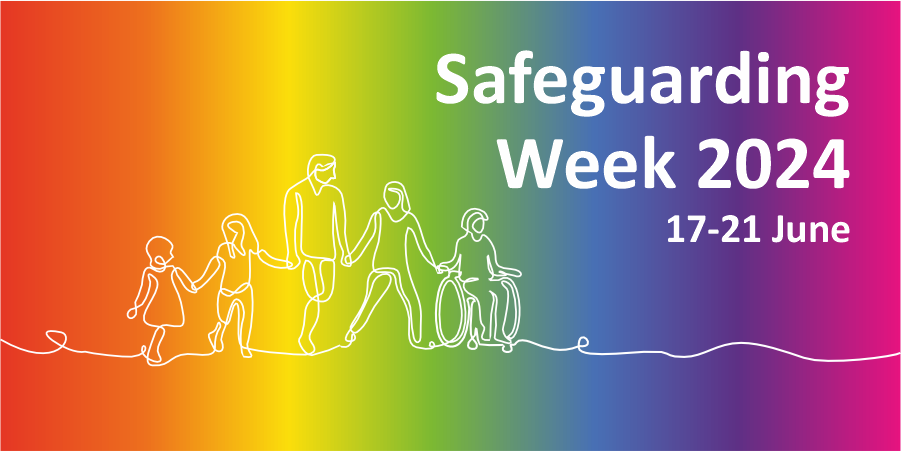What is a safeguarding concern?
A safeguarding concern is when you see, or have been told about, something that makes you think a person with care and support needs may be at risk of, or is experiencing, abuse or neglect.
It might also be where it is believed a person might be experiencing, or is at risk of, abuse or neglect but might have just support needs, (e.g. a carer).
What should I do if I become aware of a safeguarding concern?
If you have a safeguarding concern or someone discloses a concern to you,
- Can you safeguard the situation in the short term or is additional support or input required?
- If the person requires emergency health care or there is an incident which requires an immediate police response, contact 999
- If you believe a crime has been committed butthere is no immediate danger, contact the policeon 101 and share details of your concern
- Consider if it is safe and possible to discussyour concern with the person who is affected
- Consider what immediate steps are needed to protect the person. This includes whether youdecide to refer the matter to the police
- Speak with the person in a private and safeplace
- Establish the basic facts avoiding asking thesame questions more than once
- Ask them what:
- They want to happen to help keep them safe
- They would like you to do
- Listen to what the person is saying
- Seek their consent to raise a safeguarding concern where possible
- Explain how they will be involved and kept informed
- Provide information and advice on keeping safeand the safeguarding process
- Keep a record of any conversations about whatyou have been told or discussed
You should not:
- ‘interview’ the person.
- promise the person that you’ll keep what they tell you confidential; explain who you will tell and why
What if the person lacks capacity to consent to raising a safeguarding concern?
When you raise a safeguarding concern you need to check with the adult at risk if they give consent for you to do so. Sometimes it is necessary to raise a safeguarding concern even if it is contrary to the wishes of the person. You should consider:
- Does the person understand what has happened to them as in relation to the safeguarding incident?
- Have they been assessed and do they lack mental capacity to consent?
- Is it in the person’s best interests?
- Does the person already have an advocate?
- Is the person subject to coercion or undue influence, to the extent that they are unable to give consent?
- Is it in the person’s or another’s vital interests (to prevent serious harm or distress or life threatening situations)?
- Is it in the public interest? e.g. there is also a risk to others, a member of staff or volunteer is involved, or the abuse has occurred on property owned or managed by an organisation with a responsibility to provide care
There is a duty of care for provider organisations and for those working with adults. If there are grounds to override a person’s consent to share information you should:
- Explain what they are
- Make a best interest decision about the risks, and protection needed if the person is unable to provide informed consent
Where possible, agree what actions can be taken by them or you to help them protect themselves and resolve the situation. If further actions or enquiries are needed to resolve the situation, or you need to discuss the situation or actions you plan to take, contact the North Yorkshire County Council Customer Service Centre on 0300 131 2 131. Outside of office hours you should contact the Emergency Duty Team on 0300 131 2 131.
Early engagement with the police is vital to support a criminal investigation; the non-emergency contact number for the police is 101.
What should I do next?
Having found out more information and in consultation with the person, if you believe the risk of abuse or neglect remains and further enquiries are needed, you should complete a Safeguarding Adults Concern form available from the link below:
Raising a Safeguarding Concern From
Good practice tip
Use this as a checklist for completion of the Safeguarding Adults Concern Form:
- Record the date when the concern is being raised
- Include all of the person’s basic details as directed
- Describe any communication needs, e.g. interpreter needed
- Provide details of family, a friend or advocate who can support with communication
- Consider does the person have cognitive impairment or a learning disability; can the person communicate with Makaton, flash cards etc.
- Have you sought and gained the consent of the person to formally raise this safeguarding concern?
- Does the person have the mental capacity to understand what has happened to them?
- Provide details of the person or organisation believed to be abusing or neglecting the person(s).
- Provide a detailed and clear account of the safeguarding concern, including:
- The date and time of the incident to which the concerns relate
- Where it happened
- If the situation is ongoing please say so
- Record in as much detail as possible what happened
- Whether the incident was witnessed or not,who was present/involved, the seriousness of injuries sustained, immediate action taken and any measures in place to reduce risks or prevent it happening again.
- If the police have been informed, please record the Crime Reference Number given when reported, and if you have a police contact name and contact details
- Details of any other services involved in the support of this person that you are aware of
- Detail any known risks to the person and other adults or children
- Record your own details and contact details in full; if you are not the safeguarding lead, details of who may be contacted regarding the concern
- When you seek consent from the person or their representative, where possible, you must ask them:
- what they want to happen,
- establish whether they feel safe, and
- if they know how to keep themselves safe
- Any outcomes identified must be realistic and achievable
Here are some examples of the types of outcomes people might identify:
- I want the abuse to stop and to feel safe
- I want to be involved in what happens next
- I want the police to take further action
- I don’t want that carer to support me anymore
- I want to prevent this from happening to anyone else
- I don’t want any action taken
- I love my partner I just want them to stop hitting me
- To submit the completed safeguarding concern form, please follow instructions as directed on: Safeguarding vulnerable adults | North Yorkshire Council
- If you do not have access to the internet please contact the Customer Service Centre on 0300 131 2 131.
For more information:
Visit the North Yorkshire Safeguarding Adults Board website for more information, including:
To receive the latest information, updates, and safeguarding news you can also follow the NYSAB by twitter at:





 View all our news
View all our news